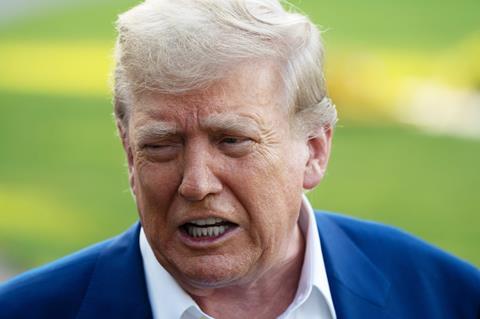The US administration has shown its first sign of fighting back against court orders curtailing President Trump's executive actions against law practices.
The president and his justice department offered no response to the first of four judgments from federal courts that executive orders made against firms were unlawful.
But it was reported this week that the US government has appealed a judge’s decision to strike down an order involving Seattle-headquartered Perkins Coie.
No details were provided about arguments contained in the justice department’s notice of appeal and the White House has made no comment. But it could provide the first opportunity for the US Court of Appeals to decide on the lawfulness of the president’s spate of orders restricting access to government contracts and access to government buildings.
Perkins Coie said in a statement that it looked forward to presenting its case to the appeals court and that the executive order ‘violate core constitutional freedoms’.

Read more
In May, Washington DC District Judge Beryl A. Howell declared an order against Perkins Coie to be null and void as it blocked free speech rights and clients’ right to counsel. Trump had made the decision based on the firm’s work for his former presidential rival Hillary Clinton and ‘activist donors including George Soros’.
Judge Howell wrote in her ruling: ‘In a cringe-worthy twist on the theatrical phrase “Let’s kill all the lawyers,” [the order] takes the approach of “Let’s kill the lawyers I don’t like,” sending the clear message: lawyers must stick to the party line, or else.’
The Perkins Coie ruling was the first of four court judgments that executive orders against different firms were unlawful.
The most recent of these was last week, when US District Judge Loren L. Alikhan ruled that an executive order against litigation firm Susman Godfrey LLP violated the constitution and should be permanently injuncted.
Trump had accused Susman of ‘spearhead[ing] efforts to weaponise the American legal system and degrade the quality of American elections’, as well as funding groups that undermine the effectiveness of the military and engaging in racial discrimination on the through its diversity policies.
Judge Alikhan ruled that the order constituted unlawful retaliation against Susman for activities protected by the first amendment, including its representation of certain clients, its donations to certain causes, and its expression of its beliefs regarding diversity.
This article is now closed for comment.































16 Readers' comments